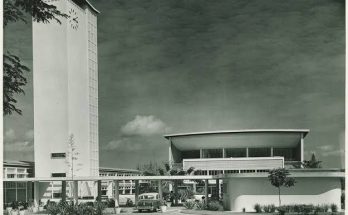It is often said that the end of a thing can be predicted from its beginning. And while this is not the end yet, perhaps the current state of the Union was always inevitable, signposted from the very start of this administration. It is not the end—and we remain hopeful for change—but the precedent so far suggests that such hope may be misplaced. It may be argued, and rightly so, that this administration, like many before it, has not been an outright failure. But it has also not been without its flaws. This editorial aims to assess the first hundred days of this promising administration—examining the good, the bad, and measuring both against the yardsticks of logic and true unionism to determine how well it has truly performed.
The Auspicious team has not hesitated to blow its trumpet at every perceived achievement—no matter how modest. Social media has become their bulletin board, with pictures and memos rolled out as proof of progress. For instance, when the ₦50,000 studio levy imposed on tech students was reversed, they promptly released a memo to that effect, announcing this. But the reversal of the studio levy was not their only feat in the first hundred days. The administration also claimed to have lobbied for the renovation and expansion of the main UI road and pushed for the enforcement of traffic rules aimed at improving student safety. In addition, they saw through the long-awaited renovation of the SRC chamber—a project that began in the previous session. To round things off, they organised what appeared to be a successful freshers’ week, which welcomed new students with a semblance of structure and activity.
However, while some of the administration’s feats are commendable, only a few hold substantial weight in the grand scheme of student welfare and representation. The Union, under this administration, has also been marked by failures and missteps—ones that, if left unaddressed, could leave lasting scars on the student body it is meant to serve. The primary duty of the Union is clear: to represent and protect the welfare of students. But from the onset, this administration has faltered on that front. In fact, their failure was evident on the very day they assumed office.
To jog the memory of those who may have forgotten—and to clarify for those unaware—on March 7th, 2025, during the inauguration of the newly elected Executive Council and Student Representative Council, a deeply troubling incident occurred. Nice Linus, who had emerged as her hall’s Majority Leader but was controversially disqualified, attempted to take her oath alongside other elected SRC members. Instead, she was forcefully bundled out of the venue, catching the attention of everyone in the hall. What made this more alarming was the silence that followed: many student leaders and politicians, including every member of the newly inaugurated Executive Council, sat in silence—watching, doing nothing. Students who tried to assist her were also reportedly assaulted. That incident was not just an unfortunate repetition of history but also, a foreshadowing of what might be the fate of every UITE during the Auspicious administration.
Upon resumption, as with many administrations before it, this one was immediately confronted with the issues of fees—hiked fees, duplicated charges, inconsistent fees-all of which posed a serious threat to the financial stability of students. Yet, rather than hitting the ground running, the administration appeared to stall. Despite assurances that efforts were ongoing behind the scenes, the lack of visible, immediate action only heightened students’ frustration. It wasn’t until May 1st—several weeks into the session—that the administration convened a town hall meeting with faculty and departmental heads to chart a way forward. Their first tangible response? A Google form. As has become tradition, the form was intended to gauge the extent of students’ struggles with fees and determine whether a congress should be held. But at this point, the form had lost its value. The reality is well-known: students are struggling. And another form isn’t needed to confirm what is already glaring. Hiked and duplicated fees are not new; what is needed is decisive action. Ultimately, the administration’s only concrete outcome on the fee crisis was an extension of the payment deadline. While these steps offered temporary relief to a fraction of the student population, it is not enough as even with the deadline, some students are still left unable to pay their fees.
A defining episode that laid bare the cracks in this administration’s commitment to student engagement and representation was the chaos surrounding the long-delayed Congress initially scheduled for May 17th, 2025. At a sitting held on May 10th, the Student Representative Council (SRC) moved a motion that a Congress would hold on the 17th. However, in the days that followed, no formal publicity was made—no graphics, no official release from the Student Union Executive Council or even from the SRC. The only information available came from a few local press organisations who published the announcement independently. This silence stretched until Thursday, May15th—two days to the congress—when the SRC made a release, reiterating that the Congress would, in fact, hold. Still, the executive council remained silent. Later that evening, the Student Executive Council issued a last-minute memo, unilaterally postponing the Congress because some of its members had allegedly been attacked. The timing and vagueness of the memo only deepened confusion.
In response, on May 16th, the SRC held a sitting and moved that the Congress must proceed as planned. The executive council were instructed to issue a release to that effect immediately after. However, the release was delayed and by the time the announcement was finally made—over an hour and thirteen minutes before the scheduled time—it was too little, too late. The Congress, originally slated for Saturday, May 17th, did not hold because a quorum was not met. This incident revealed more than just a procedural failure; it exposed the deepening dysfunction in Union coordination and communication. The Executive Council’s lack of preparation and the SRC’s reactionary approach share blame, but so too does the pervasive apathy among students at the University of Ibadan.
Eventually, when it became clear that the administration could do little about the hiked fees, they turned to the easiest available alternative: encouraging students to apply for the NELFUND loan. But this shift in position raises a serious question of integrity. During his campaign, the Students’ Union President, Mr. Covenant Odedele, had clearly spoken against the NELFUND scheme in an interview with the Union of Campus Journalists (UCJ). At the time, he described the initiative as “anti-students” and made it clear that he was opposed to it. Yet, just months into office, his administration not only began encouraging students to take the loan, but also issued an official memo to that effect.
More strikingly, in the administration’s release commemorating their first 100 days in office, the administration listed the post-session interface with NELFUND as one of its achievements—complete with photo ops. Some may argue that attending a post-session meeting or publicising the loan doesn’t equate to endorsing it. But at what point does proximity become complicity? How much mingling with what you once opposed does it take before it turns into hypocrisy? This inconsistency is not just political; it is moral. It is a sharp departure from campaign promises and a troubling reflection of how easily ideals can be traded for convenience once power is attained.
However, the issue of fees and congresses is not the only aspect the Students’ executive council have failed in, as there is the lingering crisis of electricity on campus—a problem that has not only persisted across administrations but worsened to the point of halting students’ daily lives. The situation has become unbearable, with students regularly enduring multiple blackouts. Most recently, students faced a three-to-four-day outage, during which they had to find other sources of water and means to charge their phones, and meet basic needs. This is not a new phenomenon. The campus power crisis is cyclical and worsening, and the response from the Union has remained largely cosmetic.
This administration, like its predecessors, has responded to power failures with what appears to be short-term band-aids, vague updates, or simply silence. There is little evidence of a coordinated or consistent strategy to address the root causes of the blackouts or pressure the necessary authorities for long-term solutions. Each blackout is treated as an unfortunate incident, rather than as part of a chronic crisis. Meanwhile, students continue to suffer—unable to study, live comfortably, or access water—because of a basic utility that remains elusive. The Student Executive Council cannot continue to treat electricity as an unpredictable inconvenience. It must be treated as the priority that it is.
The Union’s primary duty lies in the interests and welfare of the student body, yet time and again, this administration has faltered when it mattered most—from the fee crisis and power outages to inconsistent communication and a questionable shift in ideology. Agreeably, this administration did not inherit a perfect system, but it did inherit a responsibility—to be a voice and shield for the students of the University of Ibadan. The remaining weeks and months present a fresh opportunity to rebuild, refocus priorities, and lead with the courage and clarity students deserve. To do that, this administration must look beyond surface-level successes and confront the deeper challenges head-on. Anything less would not just fall short—it would confirm the fear that from the very beginning, this was always the path we were headed for.



